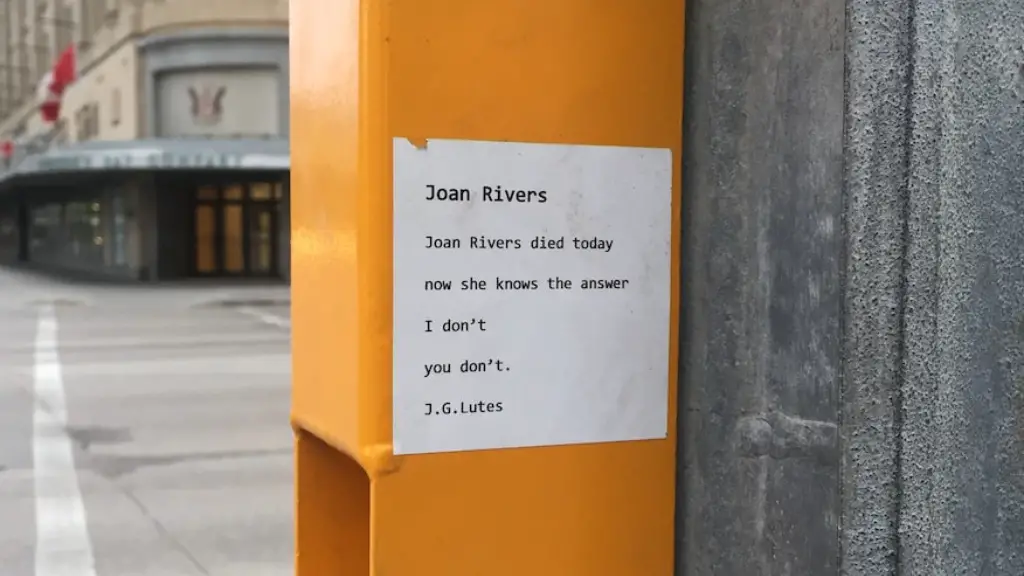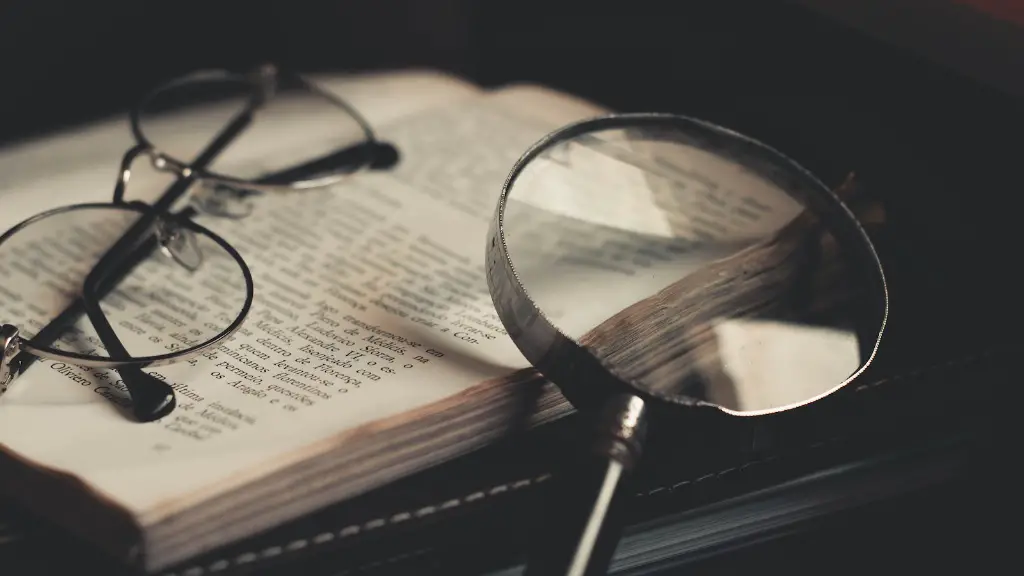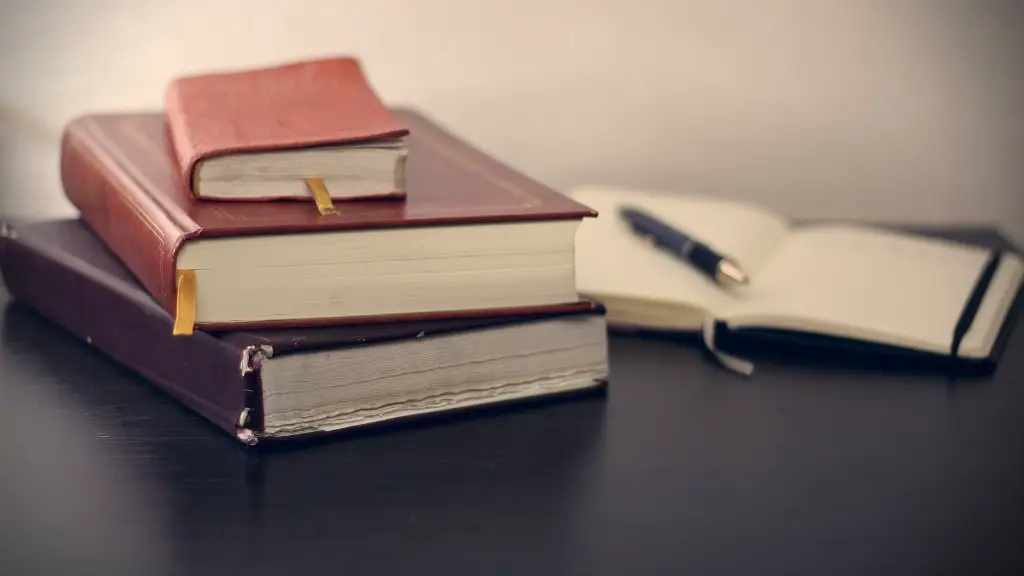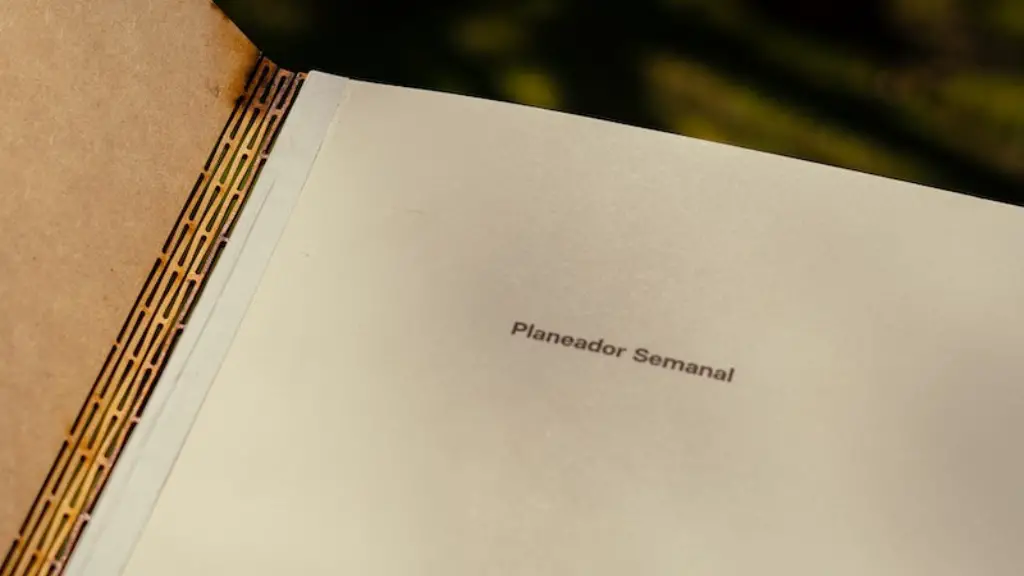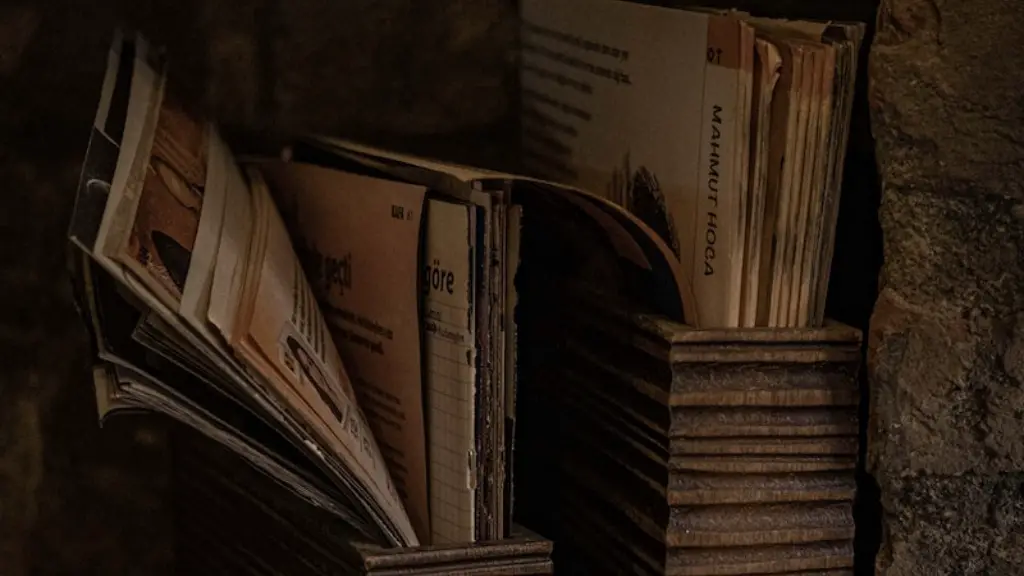Many consider poetry to be one of the most complex and powerful forms of writing. It is often filled with allusions to other pieces of work, layered with metaphor, word play and is capable of being impenetrable to even the most learned student of literature. It is a world that, to some, is deeply incomprehensible, to others, a key to unlocking some of the greatest and most powerful written works. For those that struggle to understand the meaning behind the words, it can often be an arduous task and there are several things that make it difficult to grasp.
When it comes to poetry, it is often the complexity of language that can be hard to decipher. Poets use a wide range of vocabulary and there are often layers of meaning within the sentence structure of each poem. This can make certain words hard to understand and need to be looked up before fully understanding the message being conveyed. Furthermore, when it is mixed in with metaphors and other literary devices, it can become even harder to understand.
One thing that often deters those who are new to poetry is the lack of a linear narrative. Many people are accustomed to stories that have a beginning, middle and an end, but in poetry this is not the case. Often poems jump around and may not follow a clear logical thread, which can be off-putting for beginners. This fluid structure of poetry does not always cohere, making it difficult to follow and understand what is being portrayed.
The further problem of understanding poetry is that often has multiple underlying interpretations. This can be confusing to new readers as it can be hard to tell which interpretation is the one that the poet was trying to convey. Due to the lack of a linear narrative, there are many ways of looking at the meaning of a poem and it can be a task in itself to do so. Many consider poems to be a puzzle, waiting to be deciphered.
Ultimately, there is no right or wrong interpretation of a poem and it can often be a subjective exercise. In some cases, poets can even have different interpretations of their own work, further complicating the task of understanding poetry. So, for some, understanding poetry can be an exhausting task which requires an intimate knowledge of the language, as well as a willingness to spend time digging into the layers of meaning.
Differences Between Poetry and Prose
In essence, poetry and prose are two sides of the same coin, but with distinct differences. Poems often make use of language in a completely different way to prose, with densely packed words that can evoke a certain emotion or evoke an image. Much like prose, poetry contains a narrative and a line of dialogue, however the structure of a poem often deviates from the conventions of prose. Compared to a regular narrative structure in prose, poets often disregard traditional conventions of structure and make use of poetic devices such as meter and rhyme to convey their point.
Whilst prose is generally straight forward and easy to understand, poems often contain double meanings and use deeper metaphors and symbolism to communicate the poet’s message. This complexity often requires more thought and consideration when reading the poem, making it difficult to understand what is being said if you don’t read closely.
What Is Necessary To Understand Poetry
Understanding poetry is often dependent on being able to identify the symbols, metaphors and other forms of wordplay. It is also important to be able to recognize the different forms of poetry used by the poet and how it is important for conveying the poem’s message. This can help to provide clarity and context when understanding a poem.
It is also beneficial to look at the poem from different vantage points, allowing for a multi-faceted analysis to take place. This can include looking at it from a historical or literary perspective, or exploring how the poem fits in with a wider literary context. This gives the reader the opportunity to look at the poem as a piece of art and to understand the nuances that make it so effective.
Finally, being familiar with the poet’s work and the language they use, is important. This often allows a deeper level of understanding and appreciation. Through this familiarity with their work, readers can enter the mindset of the poet and begin to discover their hidden meanings.
Overcoming Difficulties To Understand Poetry
One of the best ways to comprehend poetry is to read it as much as possible and become familiar with the language and form of writing. As with any skill, it is a matter of practice and, as someone becomes more accustomed to the form, many of the difficult aspects of poetry will become clearer.
It is also useful to begin reading translations of familiar works before venturing into more obscure pieces. This allows readers to build up an understanding of the language and the structures used by poets over the years. Once the basics are understood, more complex works can be tackled.
Another helpful technique is to dissect the poem into its separate parts and interrogate it one element at a time. Breaking down the poem into smaller chunks can allow readers to understand the poem as a whole, rather than as a single entity. This will help to reveal any hidden meanings or devices used by the poets and make it easier to understand the poem.
Benefits Of Understanding Poetry
The beauty of understanding poetry is that it allows the reader the chance to connect and engage with the poet’s work on a deeper level. Once the language and form of the poem are broken down, it becomes easier to appreciate the beauty and craftsmanship that has gone into creating it.
Furthermore, understanding poetry can allow for a deeper appreciation for the poet’s craft and the form of writing itself. By understanding the form and the language used, readers can see the genius that was hidden under the surface and begin to connect with the poet’s creative expression.
It is also helpful in unlocking the beauty in literature, particularly if the poem is a difficult piece of work. By having a deeper understanding of the language, it is possible to cut through the complexity of the poem and find the beauty that is inherent in it. There is often a deeper meaning in a poem than meets the eye and by understanding it, one can unlock its hidden beauty.
How Technology Can Make Understanding Poetry Easier
In recent years, there has been an increased use of technology to help readers make sense of poetry. Online charting software and other tools are now available to help readers explore the relationships between symbols and devices that make up a poem. Furthermore, tools such as virtual reality can allow readers to experience the poem in a new and immersive way.
The growing availability of online resources means that readers can explore and compare multiple interpretations of a poem, or take part in online discussion forums. This helps them to build up an understanding of the language and explore the different ways in which the poet is conveying their message. With so much information available at the fingertips, it can make understanding poetry much easier.
How To Use Poetry In Everyday Life
For some, poetry can be a great source of inspiration when it comes to everyday life. By understanding the meaning behind poems, readers can find new ways of looking at situations and can use this knowledge to help others. It can also be used to express emotions or to pass on life lessons in an eloquent way.
Poetry can also be a great distraction from everyday life and can be used to escape and explore new ideas, emotions and thought patterns. Furthermore, by understanding the form and language of poetry, readers will be able to appreciate the craft involved in creating these beautiful works.
Hermeneutics And Poetry
Hermeneutics is the study of interpretation of texts and has been used to understand poetry for many centuries. It is a method of interpretation which involves exploring a poem’s language and symbols, in order to uncover its true meaning. This method has been used to great effect and has allowed readers to gain a new level of understanding and appreciation for complex works.
Furthermore, hermeneutics also considers the cultural context in which a poem was written, allowing readers to gain a deeper level of appreciation for the poet’s creative expression. This can be especially helpful when trying to understand the nuances of a poem’s meaning.
The Power Of Poetry
The power of poetry lies in its ability to tap into the human experience, connecting people from all walks of life and from all cultures. By understanding the beauty and complexity of poetry, readers can appreciate the nuances of language and craft which go into making a great work of literature. This can be a valuable tool for anyone interested in literature and exploring the depths of the human experience.
Poetry has the ability to invoke strong emotions, to express profound ideas and to connect people in a way that few other forms of writing can. Understanding and deciphering the language and structure of poems can open up a whole new world of literary discovery and a greater appreciation for the power of language.
